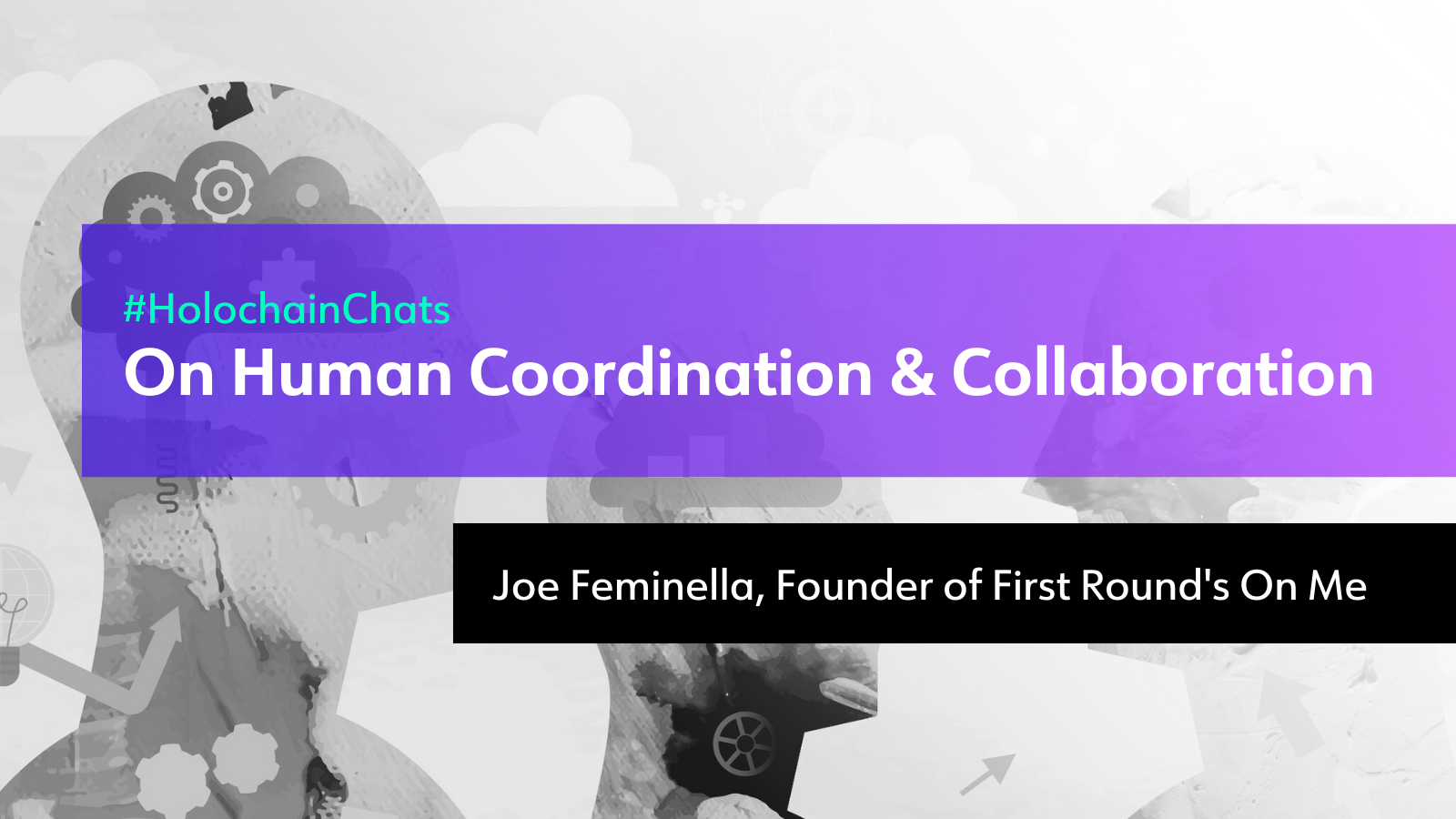Between the pings, swipes, and endless scrolls of the modern world, genuine human connection often feels out of reach. For Joe Feminella, the problem of fostering meaningful interactions in the digital era led him to found the dating app First Round’s on Me.
Sparked by his own fatigue trying to find deep relationships in a system obsessed with scale over substance, Joe’s journey reveals three pivotal insights on coordinating impactful collaboration.
Joe's experience in developing a dating app offers a unique perspective on how innovative technology can be used to create more meaningful connections.
How the Design of Coordination Systems Affect Outcomes
While technology has the power to connect people globally, design choices dictate impacts on relationships. App founder Joe Feminella observes, “I think technology is just moving so quickly that we often don't know what to do with it.” Rapid digitization makes it hard to accommodate the reality of everyday life.
Consequently, Joe watched social platforms overwhelm users with information rather than facilitating meaningful connections. Engineered to maximize matches, the barrage of stimulus short-circuited genuine intimacy.
Joe suggests that “progress requires transcending entrenched, engineering-only perspectives.” Bridging system gaps in belonging allows innovation to elevate, not exploit, understanding.
This involves recalibrating metrics to empower care-centered coordination. As Joe concludes, “user-informed design interweaves logic with healthy social values.” By grasping technology’s influence, we gain a conviction for writing social code that finally facilitates the connections we want.
Using Feedback to Build a Better App
User frustration often signals when tools hamper rather than help healthy relating. For app founder Joe Feminella, the frustration he and his dates shared about the platforms they were meeting on revealed recurrent unmet needs.
Across demographics and identities, people voiced the desire for more intentional interactions cultivating genuine intimacy. They felt starved of courtship customs signaling care, not just matches indicating cursory interest. Stark contrasts emerged between the claims of these dating apps, which promised meaningful connections, and the actual experiences of emotional depletion they provided.
Application users expressed feeling reduced to a number, valued for quantification over quality of character. As the number of dating apps grew, environments that should encourage vulnerability lacked sufficient moderation protections. Leaving many to feel objectified by digitally amplified attention patterns.
Joe suggests exploitation causes anxiety, stating “onslaughts of stimulus overload sensitivities crafted over millennia.” By focusing computing on growth before grounded human needs, innovation routinely agitates users.
This taught Joe the need for cross-discipline solutions. He felt compelled to bridge the gaps hindering healthy bonds and to leverage technology for good. As he concludes, “Progress means transcending entrenched perspectives across disciplines.” Collectively authored improvements weave care back into digital social fabrics.
Bringing More Heart Into Tech to Bridge Understanding
Holochain's framework is made for peer-to-peer applications that are secure, reliable, and fast. Moreover, Holochain is made for social applications that bring people together, centering the user. This technology aligns perfectly with Joe's vision of building authentic connections.
His experience developing a dating app that emphasizes genuine human relationships is paralleled by Holochain's goal to connect user devices directly in secure networks, giving users the autonomy of locally installed software that still benefits from the power and redundancy of cloud software.
Joe's insight into user experience and cross-disciplinary thinking are essential. New, innovative technology still needs to be user-friendly and accessible to help enable human connection. Hope persists for redeeming technology to elevate healthy bonds, not degrade them. Joe suggests progress stems from “transcending entrenched perspectives” — blending wisdom across domains to braid ethical values back into digital spaces.
A More Connected Future
The tools either dividing or uniting us remain unwritten, awaiting our choice. While scripts concentrating on control and surveillance surround us, we retain the power to edit the tale toward care.
Now more than ever, we require rewriting the social code — infusing creativity with conscience, and computation with compassion. Though challenges persist in balancing scalability with situated nuance, a more beautiful technology beckons just beyond reach when we link hands across domains.



